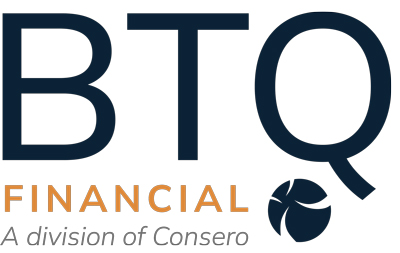Nonprofit organizations face unique challenges in managing their finances. While inflation and tightening donor resources strain their budgets, they simultaneously have growing demand for their services.
Health and human service providers that rely on government funding face additional hurdles, including increasingly complex compliance requirements, stricter reporting mandates, and intensifying competition for limited funds.
To thrive in this environment while fulfilling their missions, nonprofits need robust financial operations that ensure transparency, promote good stewardship, and secure long-term sustainability.
This article summarizes the comprehensive eBook from BTQ Financial, offering insights into how nonprofits can strengthen their financial operations, which you can download below:
Breaking the Cycle of Poor Financial Governance
Health and human services nonprofits play a crucial role in addressing critical community needs, yet many find themselves caught in a cycle of poor financial governance due to several common factors:
- Emphasis on mission over administration: Decision-making tends to prioritize programmatic activities while viewing administrative functions as secondary
- Weak financial functions: Without robust financial infrastructure and professional expertise, organizations struggle to meet accounting and reporting demands
- Limited financial literacy: Knowledge gaps make discussions about fiscal governance intimidating or non-existent
To break this cycle, nonprofit leaders must shift their perception and recognize strong financial functions as strategic assets that:
- Empower mission fulfillment
- Build constituent and donor trust
- Navigate complex regulatory landscapes
The Finance as a Service (FaaS) Solution
Nonprofits are increasingly adopting Software as a Service (SaaS) platforms and outsourced services to achieve greater efficiency, scalability, and enhanced capabilities. Finance as a Service (FaaS) extends this approach to financial management.
What is FaaS?
FaaS is a managed services approach that helps mission-driven organizations transform their financial operations while saving money, maximizing government funding, and minimizing risk.
It provides access to a comprehensive, cost-effective suite of expert-driven financial management services, eliminating the need to build and maintain these functions in-house.
Fully Managed Solution Includes:
- Bookkeeping
- Accounts receivable management
- Accounts payable processing
- Internal audits
- Compliance assurance
- Medical billing
- Secure cloud-based technology infrastructure
- Data analytics
- Process automation
- Expense systems
- Credit card systems
- Grants management
How it Works: BTQ’s Approach
- Assessment: Expert-led evaluation of financial processes to identify inefficiencies and improvement areas
- Digital Integration: Implementation of specialized nonprofit accounting and reporting software
- Billing and Accounts Receivable: Optimization of billing processes, including medical billing
- Reporting: Customized stakeholder communications and compliance reporting
- Oversight: Strengthened internal controls and audit preparation
- Strategic Financial Planning: Data-driven insights for budgeting and decision-making
FaaS Benefits for Nonprofits
FaaS creates strong financial functions that support nonprofits’ missions and ensure responsible resource stewardship:
Operational
- Greater focus on mission: By outsourcing administrative and financial burdens to experts, nonprofits can reinvest valuable time and resources into program delivery
- Faster funds collection: Timely and accurate invoicing accelerates billing cycles and fund collection
- Improved cash flow: Efficient cash management increases working capital and enhances financial resilience
- Compliance assurance: Working with nonprofit regulation experts ensures organizations meet reporting requirements for government funding
- Timely and accurate reporting: Automation and streamlined processes provide accurate information for donors, stakeholders, and regulatory requirements
Strategic
- Enhanced operational efficiency: Financial professionals optimize processes and reduce strain on in-house leadership
- Reliable forecasting: Advanced software managed by expert eyes yields stronger insights for planning
- Greater transparency: Accurate reporting improves organization-wide financial visibility and literacy
Long-Term Impact of Strong Financial Management
Strong financial management secures nonprofits’ ability to fulfill their mission and maintain constituent trust. Properly implemented systems allow organizations to allocate resources to initiatives that align with core goals and contribute to lasting change.
- Maximized impact: Effectively managed finances provide the resources needed to deliver core services
- Long-term sustainability: Robust financial functions promote stability during economic and funding challenges
- Increased competitiveness: Financial stability enhances nonprofits’ ability to secure grants, contracts, and donations
- Enhanced scalability: Financial plans tailored to growth initiatives help organizations expand programs and introduce new services
- Strengthened stakeholder confidence: Solid finances and transparent reporting demonstrate good stewardship to donors and funders
- Secured operational continuity: Consistent cash flow ensures organizations can meet essential overhead costs
For a real-world example, explore how NYCSBUS used Finance as a Service to transform its financial management and maximize impact, and contact BTQ for a consultation to learn how we can support your organization.
